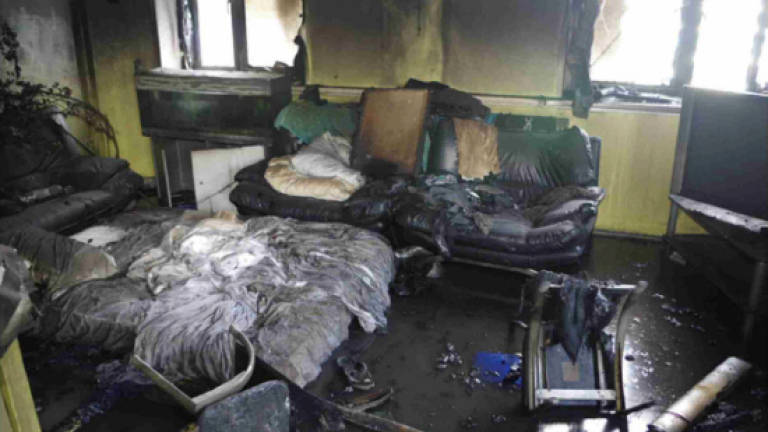Cladding on London tower blamed in expert report at inquiry

LONDON: Cladding on London's Grenfell Tower was not tested in fire conditions and did not comply with building-safety guidance, according to an expert's report released on Monday into the 2017 inferno that killed 71 people.
The cladding system and other safety failures meant the policy of telling residents to "stay put" had "effectively failed" within half an hour of the blaze's outbreak, yet remained in place for nearly two hours, fire safety engineer Barbara Lane concluded.
She blamed the material for causing "multiple internal fires" and large quantities of overwhelming smoke at the 24-storey building.
"I conclude that the entire system could not adequately resist the spread of fire," she wrote in her lengthy report commissioned by the independent inquiry into the tragedy.
"There were multiple catastrophic fire-spread routes created by the construction form and construction detailing.
"There was, therefore, an early need for a total evacuation of Grenfell Tower," Lane added, noting "I do not wish to imply this was an easy decision to make."
Seventy-one people and an unborn child died in the west London fire, which broke out shortly before 1am on June 14, 2017, likely caused by a faulty fridge.
The cladding was installed during refurbishment in 2012-2016, and has long been suspected of helping to spread the blaze.
Damning assessment
"I have found no evidence yet that any member of the design team or the construction ascertained the fire performance of the rainscreen cladding system materials, nor understood how the assembly performed in fire," Lane wrote.
She added that she had also found "no evidence" that local building authorities "were either informed or understood how the assembly would perform in a fire."
Lane also reported that a "culture of non-compliance" had plagued Grenfell Tower, with basic fire safety measures missing or defective.
Her damning assessment was one of five expert reports released Monday by the public probe detailing how the inferno started, why it spread so quickly and the effectiveness of the fire protection measures in the 24-storey building.
It follows a week of poignant testimony from relatives of those who died.
Grenfell United, the main body for survivors and bereaved families, said ahead of the latest hearing that Monday marked "the beginning of a long road to justice" for those affected by the tragedy.
"It is going to be difficult to see some organisations trying to defend their actions," it added in a statement.
"But we have trust that as the evidence emerges over the coming months, this inquiry will reveal the truth about how our community was treated before, during and after the fire."
With feelings still raw about the disaster and the way it was handled, the independent inquiry opened last month with seven days of emotive statements from relatives of those who died.
It will take evidence in two phases, with the first fact-finding stage focusing on the sequence of events before the remainder of the issues is addressed later in the year.
Martin Moore-Bick, the chairman of the inquiry, vowed to provide answers to victims' families as the tributes ended last week.
"As we move to the next stage of the inquiry, my team and I are determined to provide the answers that you seek," he said. — AFP